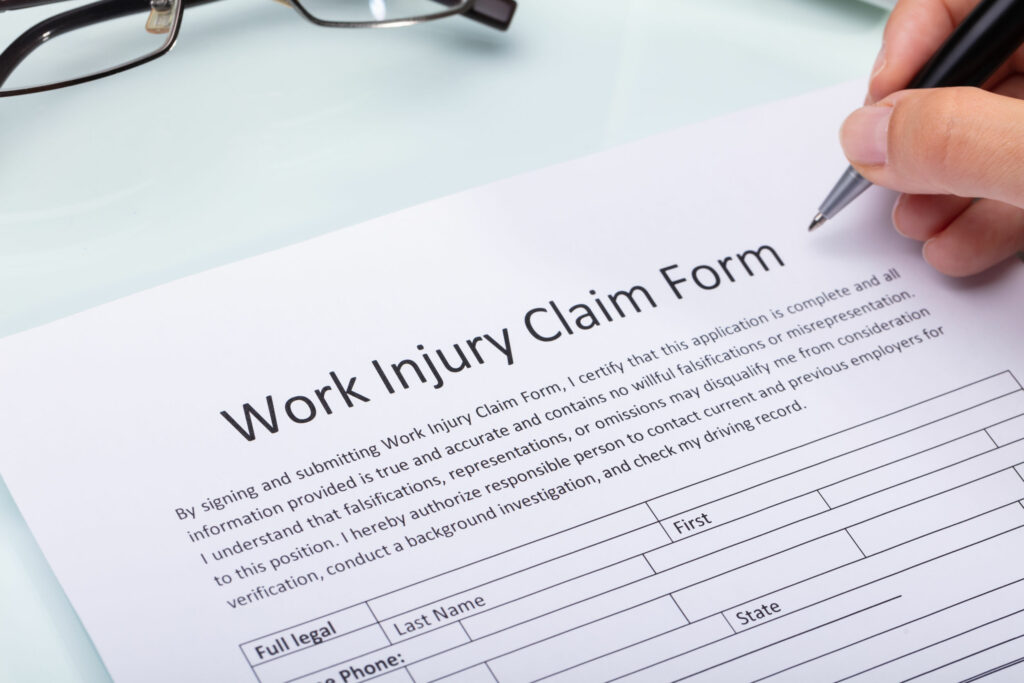
The COVID-19 pandemic has forced a majority of businesses to close because their employees are compelled to stay home to avoid getting infected with the deadly disease.
But the government allows businesses that offer essential products or services to operate because they are highly needed. A few non-essential companies that can implement COVID-19 safety protocols are also allowed to do business.
As you can see, some workers are still reporting to their offices despite the risks.
Because they no longer have employees reporting for work, most businesses see the pandemic as a factor that can trigger a decrease in workers’ compensation claims. But this may not apply to all because essential businesses and non-essential businesses that allow workers to work from home may still experience an increase in workers’ compensation claims.
Since the announcement of the COVID-19 outbreak, a lot of workers including nurses, grocery store personnel, police, food couriers, etc. were declared essential because their services are highly necessary. Their job exposes them to a greater risk of getting COVID-19.
Even workers of companies that operate on limited headcount are also exposing their workers to that risk. While we are thankful for their commitment, we’re also wondering whether they’re covered by workers’ compensation if they contract COVID-19.
To get a clearer picture of how workers’ compensation works amid the COVID-19 pandemic, we would like to present to you the most frequently asked questions received by the Workers’ Compensation Research Institute (WCRI) about the subject.
The WCRI is an independent, not-for-profit research organization that provides high-quality statistical information regarding public policy issues that involve different state workers’ insurance systems in the United States.
- Does workers’ compensation cover COVID-19? If not, why?
Theoretically, the answer would be No. Workers’ compensation does not cover communicable diseases like flu, etc. It is intended to cover injuries and illnesses of workers arising out and occurring in the course of their employment.
Generally, it would be hard to establish that a pandemic that could be contracted anywhere – is work-related. Some states even have laws that prohibit compensation for communicable diseases.
But just recently, some states are taking steps to augment the coverage of workers’ compensation to include treatment for COVID-19 as compensable for certain groups of workers. It’s only fair that these workers who put their lives at risk in the name of service should be covered by a trusted workers compensation provider network.
- How did states that seek to cover essential workers impacted by the pandemic execute their course of action?
Some states have current laws and regulations that can support the move to provide compensation to workers who contracted COVID-19 at work. The other states that don’t have existing statutes to this effect changed their rules by way of new legislation or through an executive order.
The states that intend to include COVID-19 in workers’ compensation coverage differ in certain aspects.
Some states cover only health care workers and first responders
Other states extend the coverage to include essential workers such as grocery workers,
food couriers, etc.
A few other states consider any worker qualified for workers compensation if they can
demonstrate that their COVID-19 infection or other illness is a result of their work or
employment.
If you are qualified to avail of the COVID-19 workers’ compensation benefits, you should notify your company’s medical provider network if you think you are experiencing flu-like symptoms.
Direct Pay Provider Network’s Take on the Matter
Given the present situation that we are facing today, no hard and fast rules have yet been established so far on how workers’ compensation systems operate during a pandemic. However, state legislators are striving to find effective ways to balance the interests of employers, employees, and the general public. This can help essential workers avoid huge expenses associated with COVID-19 treatment and keep employers free from suits and legal problems.
Presently, laws that are intended to address COVID-19 and workers’ compensation benefits have been passed or are pending in many major U.S. states. It is an urgent concern for many states and information about its development is tracked by the National Council on Compensation Insurance.
Initially, some states have extended coverage to health care workers and first responders. But Congress is considering federal legislation to extend coverage to employees in the Transportation Security Administration (TSA).
In California, Governor Gavin Newsom has issued an executive order that makes it easier for employees to prove that they got the COVID-19 at work and qualify for workers’ compensation benefits. The executive order also aims to consider employees who worked outside their homes from March 19 – July 25 to be presumed to have contracted COVID-19 in the course of their employment if they experience COVID-19-related illnesses.
Currently, there are no clear-cut authority or definite rules that govern how the country’s workers’ compensation systems operate during a pandemic. But since things are changing by the day, we should expect the federal government to pass legislation on how workers’ compensation can be used to mitigate the impact of a pandemic like COVID-19 on workers.
If you engage in an essential business like a grocery store or food delivery, you should be aware that your workers are exposed to the risks of the current COVID-19 pandemic. As such, you are presumed to be equipped with protective measures and prepared for any eventuality, knowing that you are dealing with an unseen enemy.
Doing business during a pandemic is both an opportunity and a risk. Claim that opportunity and contain that risk. Be sure to update your workers’ compensation insurance. It is one of the few things that can lead you to a trustworthy workers compensation provider network when your worker needs it.
